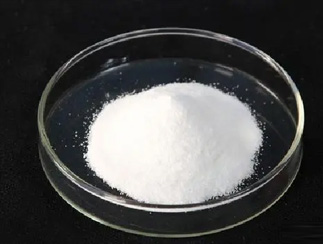Adipic acid,




Adipic acid CAS:124-04-9
Adipic acid
CAS: 124-04-9
Purity: �� 99.8%
Adipic acid, or more formally hexanedioic acid, is a white crystalline solid that melts at 152 oC. It is one of the most important monomers in the polymer industry.
Adipic acid is found in beet juice, but the article of commerce����2.5 million tonnes of it per year��is manufactured. In 1906, French chemists L. Bouveault and R. Locquin reported that adipic acid can be produced by oxidizing cyclohexanol. Today, the most common manufacturing process is the nitric acid (HNO3) oxidation of a cyclohexanol�Ccyclohexanone mixture called KA (for ketone�Calcohol) oil.
Almost all adipic acid is used as a comonomer with hexamethylenediamine to produce nylon 6-6. It is also used to manufacture other polymers such as polyurethanes.
Using HNO3 to produce adipic acid has its downside: Copious amounts of nitrous oxide (N2O), a greenhouse gas, are coproduced and released into the atmosphere. In late 2014, K. C. Hwang and A. Sagadevan of National Tsing Hua University (Hsinchu City, Taiwan) reported a process that uses ozone and ultraviolet (UV) light to oxidize KA oil to adipic acid. This method eliminates the production of N2O; but before the process can be used commercially, problems associated with the formation of organic peroxides from ozone and the difficulty of using UV light on a large scale must be overcome.




































Wechat:Customer
